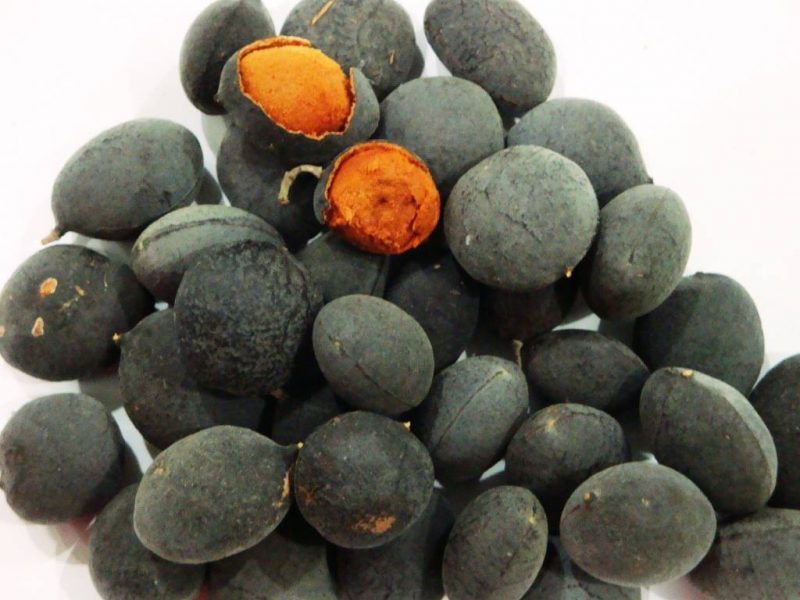Popularly called Awin in Yoruba, Icheku in Igbo and Tsamiyar kurm in Hausa land the black velvet tamarind fruit has much more significant benefits than the pleasure derived in playfully removing it from its shell.
This beautiful fruit can also be found in some West African countries such as Ghana where it is known as Yoyi, Sierra Leone and Senegal. Also scientifically called Dialium guineense Wild, the black velvet tamarind is potentially a great source of nutrients for human food.
Analyzing the proximate composition of this wonder fruit, it contains a set of selected inorganic ions and vitamin C. The sweet tangy taste of this fruit no doubts can be addictive, thus endearing one to it every day. However, according to Nutrition and you, here are a few health benefits of this ‘potent’ fruit…
1. Its sticky pulp is a rich source of non-starch polysaccharides (NSP) or dietary-fiber such as gums, hemicelluloses, mucilage, pectin and tannins. 100 g of fruit pulp provides 5.1 or over 13% of dietary fiber. NSP or dietary fiber in the food increases its bulk and augments bowel movements thereby help prevent constipation. The fiber also binds to toxins in the food thereby help protect the colon mucus membrane from cancer-causing chemicals.

2. Black Velvet Tamarind is rich in tartaric acid. Tartaric acid is a powerful anti-oxidant, thereby protecting the human body from harmful free radicals.
3. This black velvet tamarind fruit contains many volatile phytochemicals such as limonene, geraniol, safrole, cinnamic acid, methyl salicylate, pyrazine and alkyl¬thiazoles. Together these compounds account for the medicinal properties of tamarind.
5. It is also rich in many vital vitamins, including thiamin (36% of daily required levels), vitamin-A, folic acid, riboflavin, niacin, and vitamin-C. Much of these vitamins plays antioxidant as well as co-factor functions for enzyme metabolism inside the body.





Leave A Comment